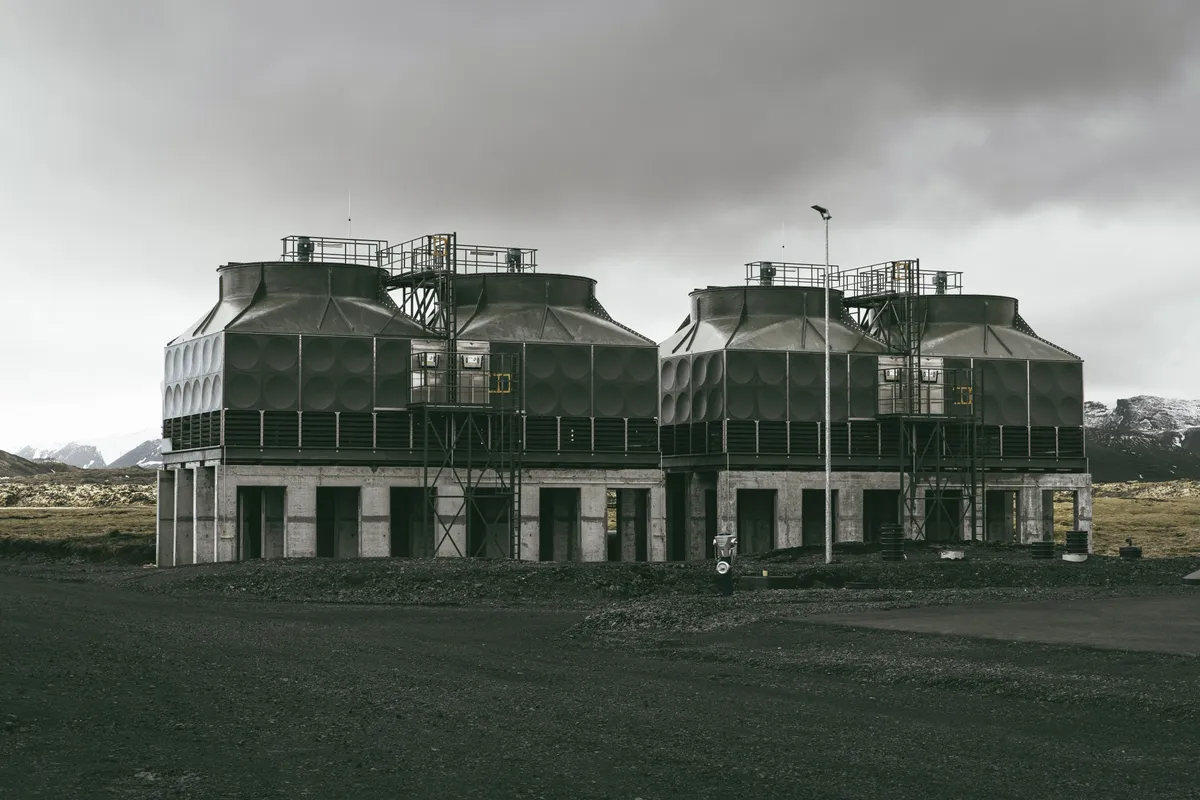McKinsey: Why Only Climate Tech Can Help Avoid Catastrophe
from Bloomberg as “Why Only Climate Tech Cash Can Help Avoid Catastrophe”
EcoTech Note: McKinsey, the premiere corporate strategy consulting firm, spoke at Climate week and explicitly talked about increasing the speed and scale of the CleanTech transition such that Learning Curve cost reductions get the Green Premium down toward zero.
– – – – – – – – – – – – –
McKinsey says many of the technologies needed to decarbonize the primary sources of planet-warming gases already exist—they just need to be scaled.
Go big or go home: That’s the scenario posed by climate change. Only in this particular case, taking half-measures means no more home.
Many of the technologies needed to decarbonize the primary sources of planet-warming gases already exist—they just need to be rolled out at a size commensurate with the challenge. According to McKinsey & Co., if carbon capture, heat pumps and the like were “deployed at scale” they could reduce as much as 90% of global greenhouse-gas emissions.
“It’s not just speed that we’re looking for,” said Mark Patel, a senior partner at McKinsey in San Francisco who focuses on climate-related technologies. “We need to intentionally seek greater and greater scale. We need to motivate ourselves to go faster and go bigger.”
McKinsey says that the 90% reduction in emissions can be delivered by 12 categories of climate technologies. However, just 10% of those are commercially competitive and a further 45% are commercially available but require further cost reductions to become competitive with carbon-intensive incumbent technologies. The remainder “hold great promise,” but are in earlier stages of development, according to the consulting group.
To maximize the emissions-cutting capacity of climate tech, whether it be batteries, solar or sustainable fuels, getting them to commercial scale is paramount, Patel said.
It was a message he delivered last Wednesday at a Climate Week reception for more than 100 investors and entrepreneurs in McKinsey’s office in lower Manhattan skyscraper. Held in view of New York Harbor, framed by the Statue of Liberty and the huge Verrazano Bridge beyond, it was an ideal location to talk about scale.
“If we want to have an impact in a time frame that’s meaningful in terms of CO2 abatement and to have a trajectory for the 2050 goal, it won’t work unless we mix speed with scale,” he told those in attendance.
But it’s not just about supersizing everything. McKinsey says it has studied the growth of an earlier generation of climate technologies, namely solar, wind and batteries, to divine a roadmap for more nascent tech to become cost competitive with fossil-fuel. McKinsey found that every 100% increase in deployment can yield at least 70% of cost reductions.
Patel said this relationship is predictable and reliable and should give investors confidence that rapid scaling will lead to disproportionate cost cuts and unlock faster adoption. And confidence is key because climate-tech investing hasn’t always worked this way.
“It’s intuitive that the more scale, the lower the unit cost should become, but in climate tech we have the challenge of so many situations in which promising technology didn’t get beyond first-of-a-kind operations and didn’t reach anywhere near a unit cost that has parity with the fossil alternative or existing incumbents,” Patel said.

And Patel isn’t the only one talking about the need to scale solutions to climate change.
During Climate Week, Standard Chartered Plc Chief Executive Officer Bill Winters argued that efforts to improve the integrity and credibility of the voluntary carbon market, which has been touted by some as a key vehicle for unlocking essential climate finance, will only have a limited impact unless that market grows in orders of magnitude from its current size.
“If it’s not scaled, what’s the point?,” Winters said. “If you don’t get the billions and billions and billions put to work, we’re simply not going to make the impact that we know we have to make.”
Relatedly, Frederick Teo, the CEO of GenZero, an investment company founded by Temasek, said in an interview in New York that any discussion of having sizable climate impacts must include the carbon sequestration power of nature. Nature-based solutions can include conserving or restoring natural ecosystems like forests or mangroves to sequester CO2.
“If you have a theory of change around what is necessary at scale today to make a difference, then nature becomes a very important part of the conversation,” he said.
Discussions in New York also touched on how to ramp up nuclear energy capacity as a critical low-carbon fuel, as well as how to deliver on a landmark pledge from last year’s United Nations’ climate summit to triple global renewable energy capacity by 2030.
“In the equation of fighting climate change, we have to take time as a variable that is a constant,” Patel said. “But variables we can affect are scale and cost, and the speed at which we progress.”
Sustainable finance in brief
So if you were expecting US Federal Reserve rate cuts to loosen up green transition purse strings, think again. It’s wrong to expect that a cycle of interest-rate cuts will suddenly revive the green transition, according to Barry Norris, the founder and chief investment officer of UK hedge fund Argonaut Capital Partners. “For the last few years, energy-transition insiders believed that the problems in the industry stemmed purely from high interest rates,” Norris said in an interview. “Interest rates are now falling, so logically sentiment in this part of the market should be better. Instead, the insiders are going back to governments asking for more subsidies.”

- Wildfires are laying waste to America’s native plants, with dire consequences for animals and humans. Though a small industry is trying to turn the tide, it’s overmatched—and now private equity has arrived.
- Some bond investors may be facing bigger default risks than their models indicate. It’s a concern voiced by a growing number of researchers studying the impact of climate change on bond markets.
- Net-zero goals should focus on funding adaptation to make property and infrastructure more resilient to the physical impacts of climate change.


